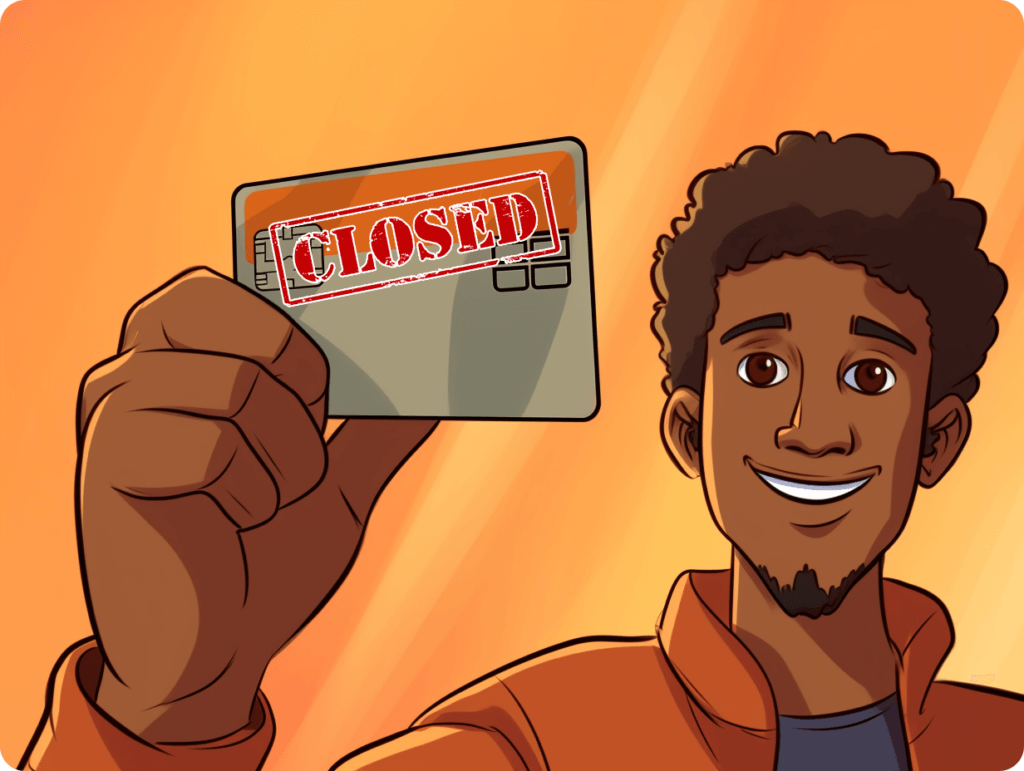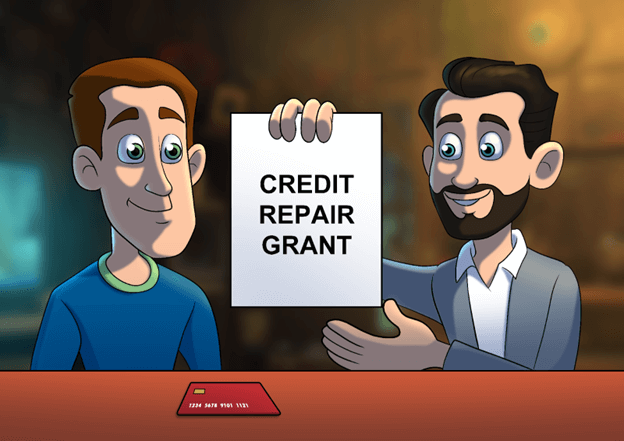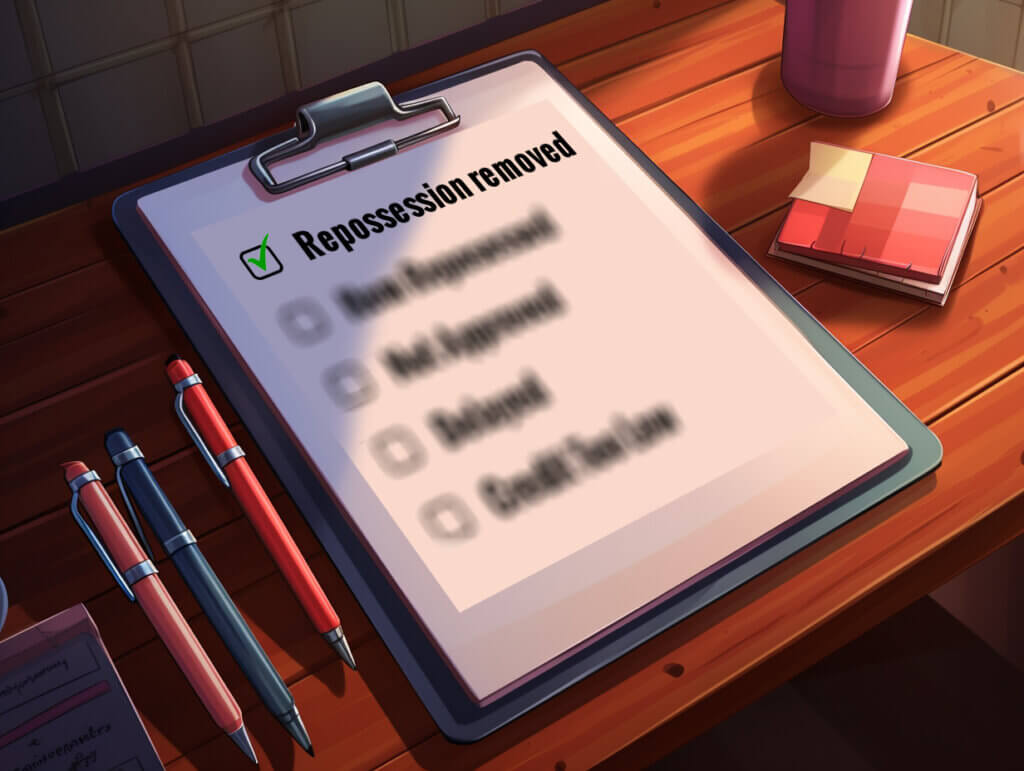- Blogs
- /
- How Does a Settlement Affect Your Credit? 6 Vital Strategies You Need
How Does a Settlement Affect Your Credit? 6 Vital Strategies You Need

Summary
Navigating personal finance always feels like walking a tightrope, especially when managing debt. That’s because every decision about debt can have far-reaching consequences.
For most people, the mere thought of settling debt fills them with relief and uncertainty. Why? Because debt settlement can affect your immediate financial situation and long-term credit health.
That’s why you must know the answer to the question: ‘How does a settlement affect your credit.?’
So, join us as we look deeper into debt settlements and credit scores. We’ll uncover the impact of settlements on your credit and show you some practical strategies for managing debt responsibly while safeguarding your creditworthiness.
Key Takeaways
- Debt settlement involves negotiating with creditors to pay a lump sum less than what you owe.
- Debt settlement agencies may charge hefty fees, worsening your financial situation and delaying progress.
- Negotiating favorable terms and continuing on-time payments can help you minimize the negative impacts of debt settlement.
- Bankruptcy provides legal protection but negatively impacts credit scores and has severe long-term consequences.
- Settling debt can increase your taxes because the IRS considers any forgiven debt above $600 taxable income.
- Settling debt can lower credit utilization by reducing the amount owed, which can boost credit scores.
- Debt settlement agencies may charge hefty fees, worsening your financial situation and delaying progress.
What is Debt Settlement?
Debt settlement is a negotiation between you and your creditors. When settling your debt, you basically agree to pay your creditors a lump sum that’s less than the total amount you owe, and in return, they forgive the rest of your debt.
How Does a Settlement Affect Your Credit?
Most people don’t know that debt settlement can be a double-edged sword for their credit score. And yes, it’s an excellent option for getting relief from overwhelming debt burdens, but it can also significantly damage your credit in the short term.
Here’s how setting your debt can affect your credit score:
1. Leads to Missed Payments
Your payment history is a critical part of your credit score. Missing one payment can have a major impact on your credit score, especially when you’re in the process of settling your debt. Why? Because your payment history contributes 35% and 41% of your FICO and Vantage score.
But here’s where things get interesting. Every lender pays close attention to your payment history. Most will not negotiate a settlement with you if you have a positive payment history because they believe you can afford to pay off your debt.
One trick some folks use while negotiating with lenders is falling behind on payments to show they’re struggling financially.
However, creditors typically report missed payments to credit bureaus after a grace period has passed, usually 30 days after the due date. Once this report is made, it will severely damage your credit score and stay on your credit profile for seven years.
Plus, if you have a high credit score, missing just one payment can mean you lose more than 100. And it’s not a secret that lenders view missed payments as red flags that limit your ability to qualify for loans.
2. Increases Your Taxes
The IRS is the largest tax collection agency, and if there’s one thing you can be sure of, it’s that the IRS hardly forgives and never forgets. That’s because the IRS sees the forgiven portion as taxable income when you settle a debt for less than the full amount owed.
So, if you successfully cancel $600 or more of your overall debt, you must report it to the IRS when filing your taxes. To do that, your creditor or debtor sends you a Form 1099-C showing how much debt was canceled. You must use this form to prepare and file your tax return.
Depending on your tax bracket and the amount of canceled debt, this increase in taxable income can increase how much taxes you pay for the year.
It’s worth noting that if you’re struggling with insolvency when your debt gets canceled, you may be able to exclude the forgiven debt from your taxable income.
Also, if a mortgage on your primary residence gets canceled through foreclosure, this canceled debt may qualify for exclusion.
3. Reduces Your Credit Utilization
When settling a debt, you’re basically haggling with your creditor to pay less than you owe. So, if you manage to strike a deal and pay off a chunk of your debt, you’re naturally reducing the amount you owe. And, by extension, you’re reducing your credit utilization ratio.
Doing this is vital because your credit utilization ratio impacts 30% and 20% of your FICO and Vantage scores. Settling your debt reduces your balance, and lowering your balances improves your credit score. And with your debt load lightened, your credit score could get a nice boost over time.
The best way to determine your credit utilization is to find your debt-to-income ratio (DTI). You can divide your debt balance by your original loan amount and multiply by 100.
So, if you have a credit card with a $15,000 credit limit but have already used $5,000, your DTI would be 33.3%. Remember, always keep your credit utilization under 30% of your credit limit.
4. Traps You in Endless Fees

One thing most folks trying to settle their debt don’t understand is that debt settlement agencies can stick you in a deeper debt hole. How? First, understand that most people only consider debt settlement because they already struggle to meet ends.
Some of these folks turn to debt settlement agencies for help, but they charge hefty fees for their services. And these fees can quickly become an extra burden for these folks since they’re already financially stressed.
Now, here’s where it gets tricky. These agencies often advise you to stop paying creditors and funnel that money into a special account they control.
But, while you’re busy saving up in that account, your creditors aren’t getting paid. That means late fees and interest keep piling up, increasing your debt burden.
Debt settlement agencies promise to negotiate with your creditors to settle your debts for less than you owe. But there’s no guarantee they’ll succeed. And even if they do, it might take ages. Meanwhile, you’re still paying the agency fees, and your credit score is taking a nosedive.
While you wait for these negotiations to work, your financial situation might worsen. Not to mention that you could be hit with lawsuits, aggressive collection tactics, and stress.
Plus, those fees from the debt settlement company keep piling up, eating into any progress you might’ve made. Yes, debt settlement agencies might promise a quick fix, but they’ll often cost you more in the long run.
5. Leads to Charge-Offs
Let’s say you finally succeeded and reached a debt settlement agreement with your creditors; one thing you should watch for is the charge-off.
But here’s the thing. Even though you’ve settled, your creditors might still report your accounts as ‘charged off‘ to the credit bureaus.
That might sound like a good thing. But, it means your creditors have given up on collecting the full amount you owe.
Now, here’s where it starts to hurt. Having a charge-off on your credit report can impact your credit score. That’s because charge-offs are a big red flag warning potential lenders that you didn’t pay back what you owed.
And the worst part is that charge-offs can remain on your credit report for up to seven years, making it harder for you to get approved for loans, credit cards, or even decent interest rates.
Here’s How Debt Settlement Works

Now, this may sound like a dream come true. Of course, who wouldn’t want to pay less than what they owe? But settling your debt isn’t all sunshine and rainbows.
Sure, you could save a ton of money and get out of debt faster, but risks are involved, too. For one, debt settlement can seriously damage your credit score and lead to hefty fees.
Plus, there’s no guarantee that your creditors will agree to settle, leaving you right back where you started.
That said, let’s take a look at how debt settlement works.
Step 1: Contact Your Lenders
Debt settlement typically starts with you reaching out to a debt settlement company or negotiating directly with your creditors.
Step 2: Start Negotiating
Once you’ve contacted your lenders, the negotiation process begins. There’s going to be lots of back-and-forth until you hopefully reach a compromise that works for everyone involved.
Step 3: Make a Lump Payment
Once a settlement is reached, you’ll typically make a lump sum payment or set up a payment plan to settle the debt once and for all.
Here’s How Your Credit Scores Are Calculated
1. Your Payment History
Paying your bills on time is the most important factor influencing your credit score. And if there’s anything every lender needs to know before giving money, it’s how dependable the person receiving it is to repay.
Your payment history provides essential information about your credit accounts, like which accounts you’ve paid on time, if your payments are past due, if you’ve had any past-due items, and how long it’s been since you had delinquencies. Furthermore, it adds 35% and 40% to your FICO and Vantage ratings, respectively.
That being said, we recognize how difficult it may be to pay bills, especially during tight circumstances. However, one method to maintain consistency is to develop and adhere to a budget. To ensure that your invoices are paid on time, you may set up automated payments.
2. How Much You Owe
The debt you owe influences 30% of your FICO and Vantage ratings. When lenders examine your debt, they frequently look at the total amount owed on all accounts, the amount owed on individual accounts, and the number of accounts with a balance.
3. How Much Credit You Use
Your credit usage is critical for your creditworthiness. It shows the percentage of your available credit you’re currently utilizing. Understanding credit use is critical to keeping a good credit profile and increasing your credit score.
That’s because it makes up around 30% of your FICO credit score and indicates how responsibly you use the credit you have.
The conventional rule of thumb is to maintain credit usage below 30%. This means you may only use up to 30% of your available credit at any given moment. So, strive to keep your credit usage ratio below 10% since it might significantly improve your credit score.
4. Your Credit History
Your credit history is a detailed record of your borrowing and repayment habits. It’s a vital component of your credit reports and substantially impacts your credit ratings.
That’s because it contains a complete record of your previous borrowing actions, such as the credit accounts you started, your credit inquiries, payment history, and account statuses.
A solid credit history demonstrates that you are dependable and trustworthy. It also makes getting loans, credit cards, and low-interest rates easier. Meanwhile, having a bad credit history will impact your ability to get low-interest loans.
5. Your Credit Mix
Your credit mix is the combination of credit accounts and loan kinds in your credit history. Your credit mix reflects the kind of credit you have utilized. This covers installment loans, revolving credit, and retail accounts.
A diversified credit mix indicates that you can manage various sorts of credit. Lenders like consumers with a varied credit mix because it implies stability and adaptability.
Avoiding canceling existing accounts is one of the most effective strategies to diversify your credit mix.
Six Strategies for Minimizing the Negative Impact of Debt Settlement

1. Negotiate Favorable Settlement Terms
When negotiating your debt settlement, don’t make the mistake of overpromising or basing your decisions on the best-case scenario. Instead, propose terms that align with your financial situation.
Be honest and transparent about what you can afford, and don’t hesitate to speak up for yourself. Remember, creditors are often willing to negotiate, especially if it means they’ll receive at least some repayment.
2. Continue to Make On-Time Payments on Other Accounts
While dealing with debt settlement, you need to maintain your other financial commitments. Keep making on-time payments on your remaining accounts, like your rent, utilities, and any other loans.
Doing this shows other lenders your commitment to financial responsibility and helps minimize the impact on your overall credit profile.
3. Monitor Your Credit Reports for Accuracy
Always stay vigilant throughout the debt settlement process and monitor your credit reports. Look for any inaccuracies or discrepancies that could negatively impact your credit score.
If you spot any errors, quickly dispute them with the credit bureaus to ensure your credit report reflects accurate information.
4. Build a Positive Credit History Post-Settlement
Once you’ve settled your debts, focus on rebuilding your credit history. Start by establishing positive financial habits, like paying bills on time, keeping your credit card balances low, and avoiding new debt.
One thing you should consider doing is applying for a secured credit card or credit-builder loan to gradually rebuild your credit score over time.
5. Avoid Taking On New Debt
We understand it can be difficult, but while working towards debt settlement, do everything possible not to take on any new debt obligations that could further strain your finances.
And yes, this includes avoiding unnecessary credit card purchases, loans, or other financial commitments. Your ultimate focus should be on living within your means and prioritizing your debt repayment goals to achieve long-term financial stability.
6. Consider Other Repayment Options
Before committing to debt settlement, ensure you’ve considered other repayment options that may be available to you. For example, you could inquire about hardship programs or repayment plans offered by your creditors.
These options may allow you to repay your debts in a more manageable way without resorting to settlement.
Three Excellent Alternatives to Debt Settlements
1. Debt Consolidation
Debt consolidation combines various debts into a single loan. Millions of Americans have used debt consolidation to make their debt repayments easier and to acquire low-interest loans.
There are several ways to consolidate your debt. From taking out a personal loan, using a balance transfer credit card, or getting a home equity loan.
Consolidation simplifies managing your credit card balances, medical expenses, personal loans, and other unsecured debts. Consolidating these debts simplifies your monthly payments and can cut the interest rates you pay on your debts.
So, instead of maintaining several due dates and minimum payments for your credit card debt, you only have to worry about making one payment monthly with a debt consolidation loan, making it far simpler to stay disciplined and prevent late payments.
2. Get Counseling
Credit counseling is an excellent service designed to help folks struggling with financial challenges get practical advice from financial experts.
One unique thing we love about credit counselors is that they take the time to listen to your financial concerns and carefully assess your current situation. They’ll use information like your income, expenses, debt, and financial goals to prepare a debt repayment plan and budget custom-made for your income and expenses.
This budget and debt repayment plan can help you efficiently manage your finances and allocate funds toward paying your debt and achieving financial freedom.
But that’s not all because credit counselors can negotiate on your behalf with creditors to secure lower interest rates and better repayment terms.
3. Filing Bankruptcy
Bankruptcy offers legal protection from creditors and collection actions. Because of this, most people struggling with unimaginables consider it a last resort since it can provide a fresh start.
When you file for bankruptcy, you place an automatic stay on all your accounts. This stops all creditor harassment, wage garnishment, and even debt collection efforts.
But it doesn’t stop there because certain debts can be fully discharged when you file for bankruptcy, providing you with a clean slate to start all over. Depending on which bankruptcy you filed, your credit card, personal loans, and medical bills may be removed from your credit report.
Yes, filing for bankruptcy can relieve overwhelming debt. But, it also has many downsides and long-term implications. One of the most significant downsides of bankruptcy is that it will negatively impact your credit score.
Bankruptcy can stay on your credit report for up to ten years. And this would make it hard to get new credit, loans, or good interest rates. Also, bankruptcies are matters of the public.
This means your potential employers, landlords, and lenders would be able to see you file for bankruptcy. Not to mention that rebuilding your credit after bankruptcy will take years.
What Debts Can You Settle?
It’s vital you understand that not all types of debt are eligible for settlement, and the eligibility criteria can vary depending on the creditor, the amount owed, and other factors.
That said, most debt settlement programs focus on unsecured debts. These debts aren’t backed by collateral. Here’s a quick rundown of some of them:
- Credit card debt.
- Medical bills.
- Personal loans.
- Utility bills (if in collections).
- Retail store credit cards.
- Some types of unsecured personal lines of credit.
Remember, creditors are more likely to consider settlement offers for delinquent or those in default debts. A debt is considered delinquent if the borrower has fallen behind on payments, typically for several months.
Most creditors are more willing to negotiate a settlement if they believe the debtor is at risk of bankruptcy or unable to repay the total amount owed.
That said, not all debts are eligible for settlement, and certain types are typically excluded from debt settlement programs. These debts include:
- Secured debts (e.g., mortgages, auto loans) where the debt is backed by collateral.
- Government-backed student loans.
- Tax debts owed to the IRS or state tax authorities.
How to Spot Debt Settlement Scams
Spotting debt settlement scams is vital for protecting yourself from financial harm. Here’s how to identify potential debt settlement scams and avoid becoming a victim of fraudulent schemes.
1. They Make Promises of Quick Fixes
Watch out for companies that promise to resolve your debt problems quickly or guarantee specific results.
Debt settlement is a complex process that takes time and negotiation with creditors. Legitimate debt settlement companies will not make unrealistic promises or guarantees.
2. They Charge Upfront Fees
Avoid any debt settlement company that requires upfront fees before providing any services. Legitimate debt settlement companies often charge fees based on a percentage of the debt they help you settle. Ignore any company that requests payment before delivering results.
3. They Lack Transparency
A legitimate debt settlement company is transparent about its services, fees, and potential risks. If a company is evasive or unwilling to provide clear information about how its program works, it may be a red flag. Always read contracts carefully and ask questions if anything seems unclear.
4. They Use Aggressive Pressure Tactics
Do not trust any company that uses high-pressure sales tactics or tries to rush you into signing up for their services.
Legitimate debt settlement companies will give you time to consider your options and make an informed decision. Avoid any company pushing you to make hasty decisions or signing contracts without understanding the terms.
5. They Make Unrealistic Claims
Watch out for companies that make unrealistic claims or exaggerate the benefits of their services.
Debt settlement affects your credit score and financial situation, and legitimate companies will give you honest information about the potential risks and benefits. If a company downplays the risks or makes promises that sound too good to be true, proceed with caution.
6. They Ask for Personal Information Upfront
Always exercise caution when giving your personal or financial information to debt settlement companies, especially if you’re unsure of their legitimacy.
Scammers may use phishing tactics to steal your identity or commit fraud. Only share sensitive information with reputable companies. Ensure any company you send your personal information to is credible and has a track record of providing real services.
7. They Lack Accreditation
Research the credentials and reputation of any debt settlement company you’re considering working with.
Legitimate companies are often accredited by government bodies like the American Fair Credit Council (AFCC) or the International Association of Professional Debt Arbitrators (IAPDA).
Also, check for reviews and complaints from past clients to gauge the company’s track record.
8. Always Trust Your Instincts
Trust your instincts and intuition when evaluating debt settlement offers. Suppose something doesn’t feel right, or you’re unsure about a company’s legitimacy.
In that case, it’s better to err on the side of caution and seek advice from a trusted financial advisor or credit counselor. Remember, your financial health is too important to risk with scams.
Always Consider the Benefits and Drawbacks
Understanding the impact of debt settlement on your credit is crucial for your financial well-being. And while debt settlement can offer relief from overwhelming debt, it’s vital to acknowledge its lasting consequences on your credit score and financial future.
The best way to navigate your debt settlement effectively is to weigh the benefits and drawbacks, explore alternative options, and implement strategies to mitigate any negative effects.
As you work towards long-term financial health, getting the right knowledge and making informed decisions will do you a world of good. Remember to get professional advice if you ever get stuck.
FAQs
How does a settlement affect your credit score?
When you settle a debt, it can hurt your credit score. The account gets marked as ‘settled’ on your credit report, indicating that it’s been partially paid off. This could lead to a temporary decrease in your score.
Can I improve my credit after settling a debt?
Yes, you can still improve your credit after settling a debt. The easiest way to do that is by making early payments on other accounts, keeping balances low, and practicing good financial habits. Doing this can help you gradually rebuild your credit over time.
Are there alternatives to debt settlement?
Certainly! There are alternative options to debt settlement that you may find more suitable. Some include negotiating directly with creditors for better terms and exploring debt consolidation through loans or balance transfers. You can also seek guidance from credit counseling agencies or create a solid budget plan.
What are the strategies to avoid debt settlement?
To avoid resorting to debt settlement, you must remain proactive. Start by managing your budget effectively, and if you encounter financial difficulties, reach out to your creditors early to discuss potential solutions. You can also consider refinancing options or balance transfers for high-interest debts.
How long do settled accounts stay on my credit report?
Settled accounts typically remain on your credit report for about seven years from the initial delinquency that led to the account being placed in collections. That said, ensure you check your credit report often to spot and fix any errors on your credit report.
Our Latest Blogs:

ThisIsJohnWilliams
FREE Strategy Session to Fix Your Credit Blogs / Facebook Twitter Linkedin Instagram Share Summary Ever wondered about the...

ThisIsJohnWilliams
FREE Strategy Session to Fix Your Credit Blogs / In a society where credit scores can significantly influence economic...

ThisIsJohnWilliams
FREE Strategy Session to Fix Your Credit Blogs / Financial stability is the cornerstone of well-being, so understanding the...

ThisIsJohnWilliams
FREE Strategy Session to Fix Your Credit Blogs / Facebook Twitter Linkedin Instagram Share Summary Understanding the effects of...

ThisIsJohnWilliams
FREE Strategy Session to Fix Your Credit Blogs / Facebook Twitter Linkedin Instagram Share Summary Life can be unpredictable...






